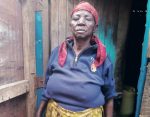In this interesting, new video learn about the program run by an alliance of SPARC, National Slum Dwellers Federation and Mahila Milan (a women’s savings collective) to support program those with TB and their families. This work was undertaken as part of the ARISE consortium’s work in India.
Filmed in Freetown, Sierra Leone, the documentary looks at the realities of life for people living in informal settlements. It also explores ARISE’s community based participatory research approach, undertaken in partnership with communities to claim their rights to health, and address issues of health and political accountability to put people at the heart of decision […]
To celebrate the 125th anniversary of Liverpool School of Tropical Medicine, artist Luke Jerram is working in Freetown, Sierra Leone in collaboration with ARISE. Helping to empower local communities, we worked with local teams to install 21 solar powered LED streetlights within the informal settlements of Freetown. We installed the permanent lighting in public areas including water collection areas, […]
“…I sometimes ask myself whether we shall be able to overcome and make it through to take care of the children” – Lenar is an older person living in Viwandani Informal Settlement This gallery has been created using a selection of images included in a recent Photovoice project. The project is the result of a […]
The Ripple Effect Mapping Tool provides a space for research partners to reflect on their achievements and refocus on their aims while also supporting reflexivity processes on positionality, inclusion and equity. As such, grounds the research within the lived realities of communities. The tool also supports communities and researchers to engage in critical learning. It […]
We’re pleased to share this video documentary highlighting ARISE work on COVID-19 in Bangladesh.





